Guardians of the Last Wild Places: The Critical Role of Forest Rangers
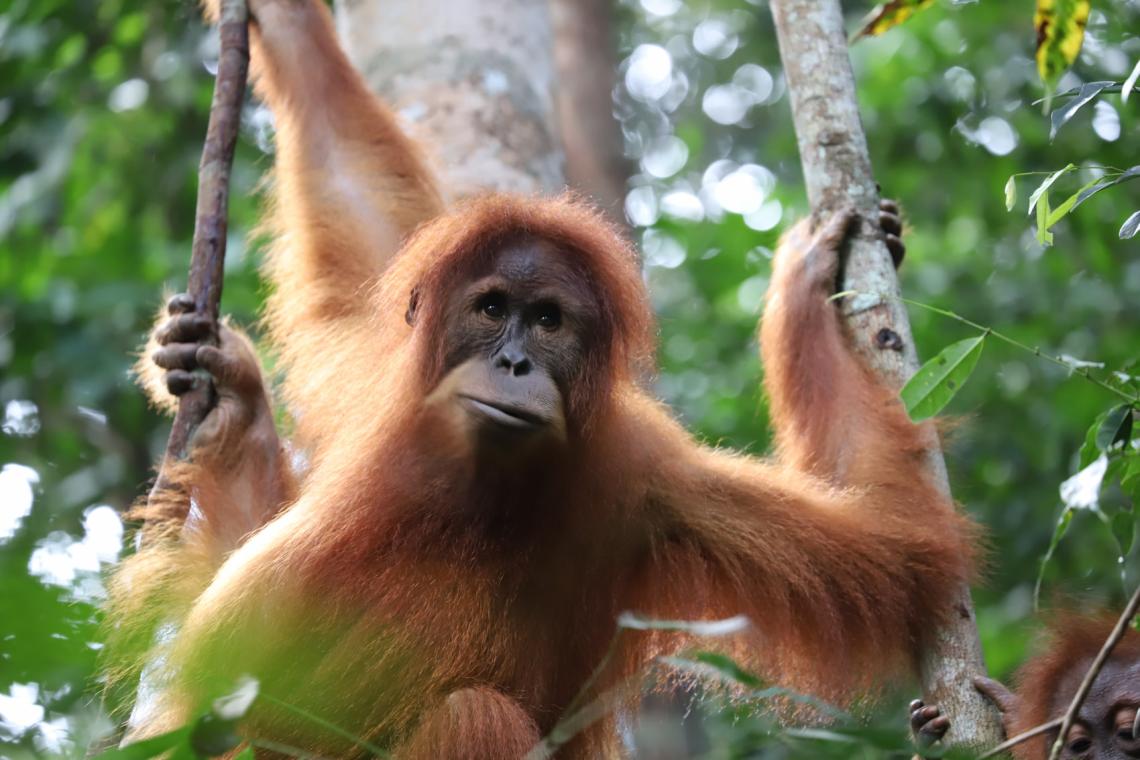
Sumatra’s last remaining forests are among the most important conservation landscapes on Earth. They contain three of the world’s most iconic species, Sumatran orangutans, tigers and elephants. All listed as Critically Endangered and facing rapid population decline.
Their stories are heartbreakingly similar: mothers killed for wandering too close to villages, brutally hunted for their body parts. Babies torn from their mothers, and sold into the illegal wildlife trade. Snares hidden deep in the forest, claiming wild lives.
So how do we save them?
The survival of Critically Endangered orangutans, tigers and elephants is threatened primarily by habitat loss, human–wildlife conflict, poaching, and the illegal wildlife trade.
Addressing these threats, and preventing further loss, requires not only policy reform and international cooperation, but consistent, skilled protection on the ground. This frontline work is carried out by Forest Security Rangers in the Wildlife Protection Unit (WPU), whose activities directly shape the future of these species. Among these rangers are Wilda, Suci Amalia, and Dina, dedicated to protecting wildlife and habitat in the Bukit Tigapuluh Ecosystem in Sumatra.
Their goal: patrol the forest, stop illegal activities, and give wildlife a real chance at survival.
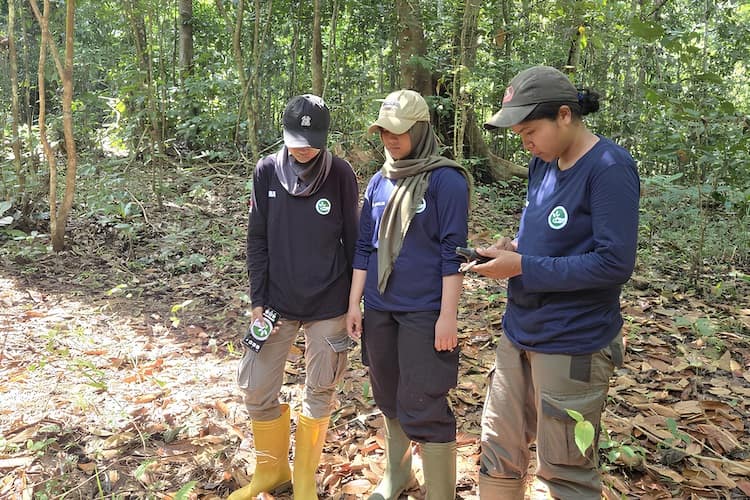
For Wilda, this work is more than just a job. It’s a responsibility to the future of this planet, and all living beings.
“Forests provide vital habitats for countless species, including wildlife. It's essential that we protect these wild animals, as they each play a critical role in maintaining ecological balance. Every living creature has its own function, and the loss of even one species can disrupt the entire ecosystem.”
“For me,” adds Dina, “protecting forests and wildlife is not only about saving nature, but also about safeguarding our natural heritage for future generations.”
The Bukit Tigapuluh Ecosystem: A Critical Conservation Landscape
The Bukit Tigapuluh Ecosystem in Sumatra is one of the last remaining areas where orangutans, elephants and tigers still coexist. However, this landscape is under intense pressure from illegal logging, agricultural expansion, encroachment, mining, and poaching. To safeguard the land, The Orangutan Project, WWF Indonesia, and Frankfurt Zoological Society jointly established PT Alam Bukit Tigapuluh (ABT) - an ecosystem restoration company managing 38,665 hectares of forest bordering the Bukit Tigapuluh National Park. Forest Security Rangers are integral to ABT’s efforts to restore habitat, monitor biodiversity, and enforce environmental protection laws.
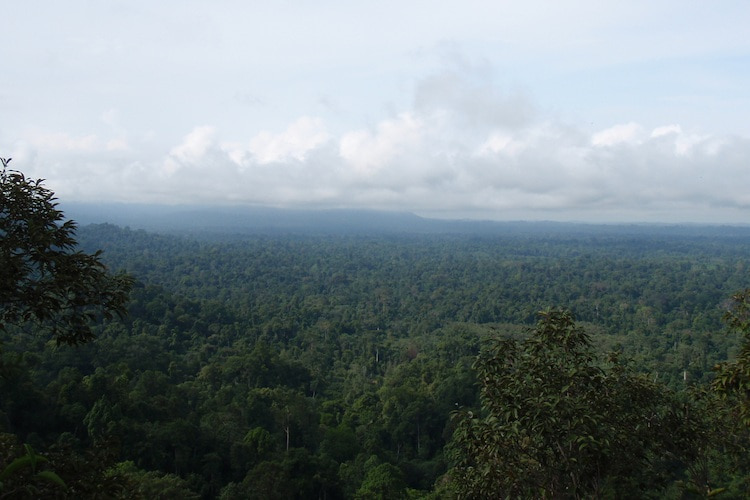
The Role of Forest Security Rangers
Forest Security Rangers operate at the intersection of biodiversity protection, law enforcement support, and community engagement. They contribute to conservation outcomes through several core functions:
1. Stopping Illegal Activities
Rangers conduct routine patrols to detect and deter illegal logging, land clearing, encroachment, poaching and illegal farming. They document evidence, remove snares, confiscate equipment, and coordinate with law enforcement to support prosecutions.
Ranger Wilda explains the breadth of this work:
“We don’t just monitor the condition of the forest, we also gather important information. From the state of the paths, the health of the forest, and any potential threats that may arise,” she explains.
Not only do rangers stop activities as they happen, their continued presence in the forest deters repeat and future offences, significantly reducing illegal activity.
2. Monitoring Wildlife and Preventing Conflict
As forest cover decreases, wildlife is forced into neighbouring farmland and villages in search of food. This leads to crop destruction, infrastructure damage, human injuries, and retaliation killings of wildlife.
Rangers play a preventative role by tracking wildlife movements, and operating early-warning systems, particularly for elephants and tigers. These alerts enable communities to protect their crops, before wildlife reaches farmland.
This work is crucial for reducing injury or death, both human and animal, and is a key component of long-term coexistence strategies.
3. Supporting Community Awareness and Engagement
Effective conservation requires support and cooperation from local communities. Rangers engage regularly with surrounding villages to improve their understanding of forest ecosystems services (like clean water, climate regulation and soil fertility), and the vital need to protect them. They offer education on the ecological role of wildlife, the long term consequences of deforestation and illegal activity, and assist with alternative livelihood opportunities.
Community engagement has led to measurable behavioural shifts. Ranger Suci Amalia notes a growing awareness:
“I’ve witnessed firsthand how nature and the environment are gradually recovering from damage. I’ve also met community members who now understand how important it is to protect nature and wildlife.”
Improved community attitudes reinforce patrol efforts, and contribute to lasting habitat security.
Operational Challenges and Risks
Forest Security Rangers work under demanding conditions. Patrol areas cover remote forest blocks, where they must navigate steep terrain, extreme weather, and areas impacted by forest fires or illicit activities. Rangers regularly encounter active snares and illegal camps. Their fieldwork requires technical skills in navigation, reporting, and risk management.
As Ranger Suci Amalia emphasises:
“If we fail to protect forests and the creatures that inhabit them, the balance of the ecosystem will be disrupted, even destroyed.”
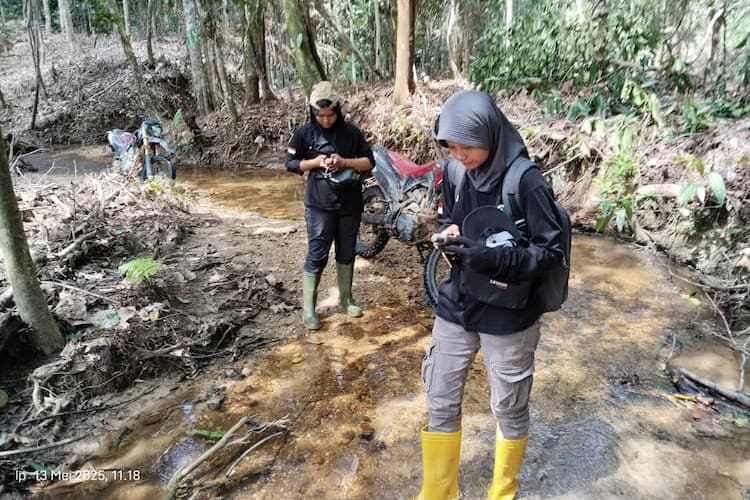
Indicators of Progress
Despite the scale of challenges, Rangers have observed several positive indicators of progress inside ABT’s concession area.
“The large number of ranger personnel undoubtedly maximizes efforts in forest protection and wildlife conservation,” says Dina.
A recent patrol led by Wilda identified newly cleared land inside a restricted zone. After explaining the legal and ecological consequences, the individuals involved agreed to cease the activity – demonstrating growing understanding driven by consistent ranger engagement.
Forest areas once damaged are now regenerating, snare density has reduced with consistent patrols, and rangers are noting that increased cooperation with communities is preventing potential conflict. As communities are becoming active supporters of conservation, Critically Endangered species are given a real chance at survival.
Supporting Ranger Efforts
Forest Security Rangers are among the most effective conservation interventions available. Their presence directly reduces environmental crime, enhances species protection, and accelerates forest recovery.
Rangers require sustained support to stay in the field. Supporting The Orangutan Project helps fund these patrols, as well as anti-poaching operations, conflict mitigation, and habitat protection and restoration. Funding provides rangers with field equipment, protective gear, and ongoing training.
The survival of Sumatran orangutans, tigers and elephants depends on practical, field-level protection. And rangers in the WPU provide exactly that.
As Wilda summarises:
“Protecting forests means protecting the entire ecosystem. When our forests are healthy and well-maintained, the positive impact is immediately felt in our surrounding environment–clean air, fresh water, and fertile soil are all outcomes of well-preserved forests.”
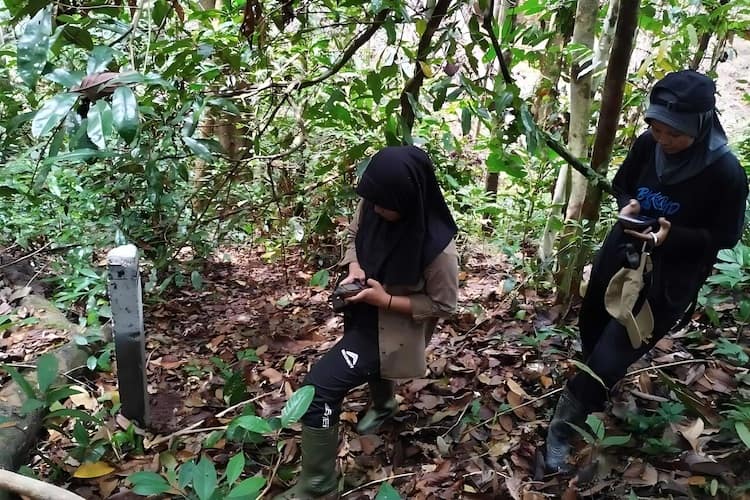
Sustained ranger presence is not optional, it’s essential. Their work, grounded in field evidence and daily vigilance, forms the backbone of conservation in one of Sumatra’s last remaining wild strongholds. Critically Endangered species cannot survive without secure, functioning forests, and forests cannot be secured without the people committed to protecting them.
“Protecting forests and wildlife is a shared responsibility that cannot be left to just a few individuals or organisations. Damage to one part will affect the entire life system on Earth,” says Dina.
“I hope that we can all work together to restore the Bukit Tigapuluh ecosystem. This recovery process certainly requires time and great effort, but with awareness, hard work, and good collaboration, we can make this happen for the sake of preserving nature and the sustainability of life in the future.”
About The Orangutan Project
The Orangutan Project was established in 1998 with a critical mission; to ensure that Critically Endangered orangutan species are protected against extinction and will continue to live in viable wild populations for generations to come.
Today, The Orangutan Project is a dynamic, fast-growing and successful non-profit organisation that has raised over $43 million to support a wide range of critical projects that address the holistic problem facing fragmented orangutan populations. Including fighting deforestation and habitat loss at the highest level.
Find out more, and support Wildlife Protection Units at https://www.theorangutanproject.org/
Discuss this article
Clicking links may earn us commission. . Stock images by Depositphotos.
Subscribe: Stories about wildlife, habitats and heroes
Welcome to Conservation Mag where we celebrate nature preservation through ecotourism and wildlife travel while we look for ways to preserve our heritage by supporting nature conservation. Starting conversations about the positive action people like you and I are taking to make a change.
Quick Links
Work With Us
![]()

